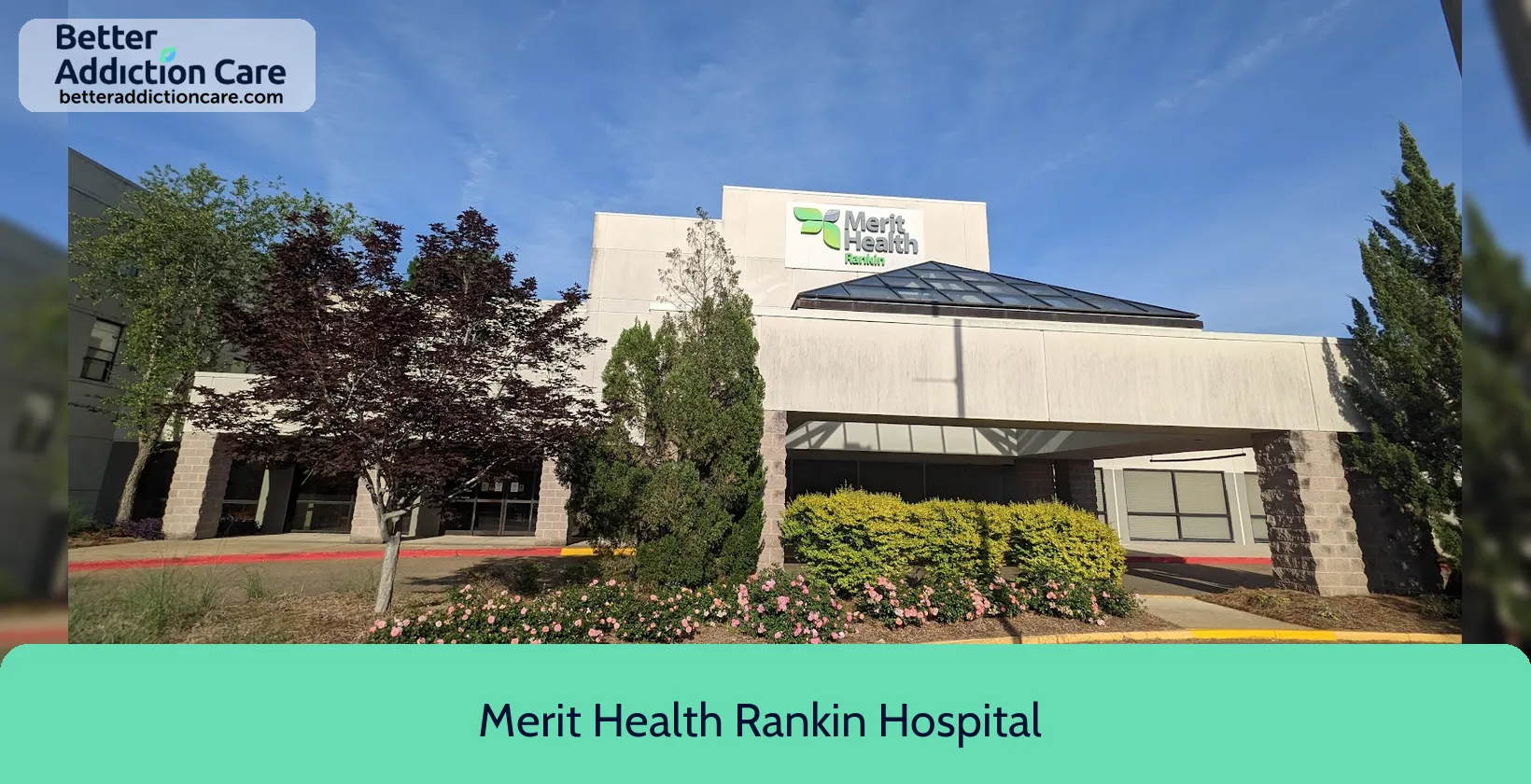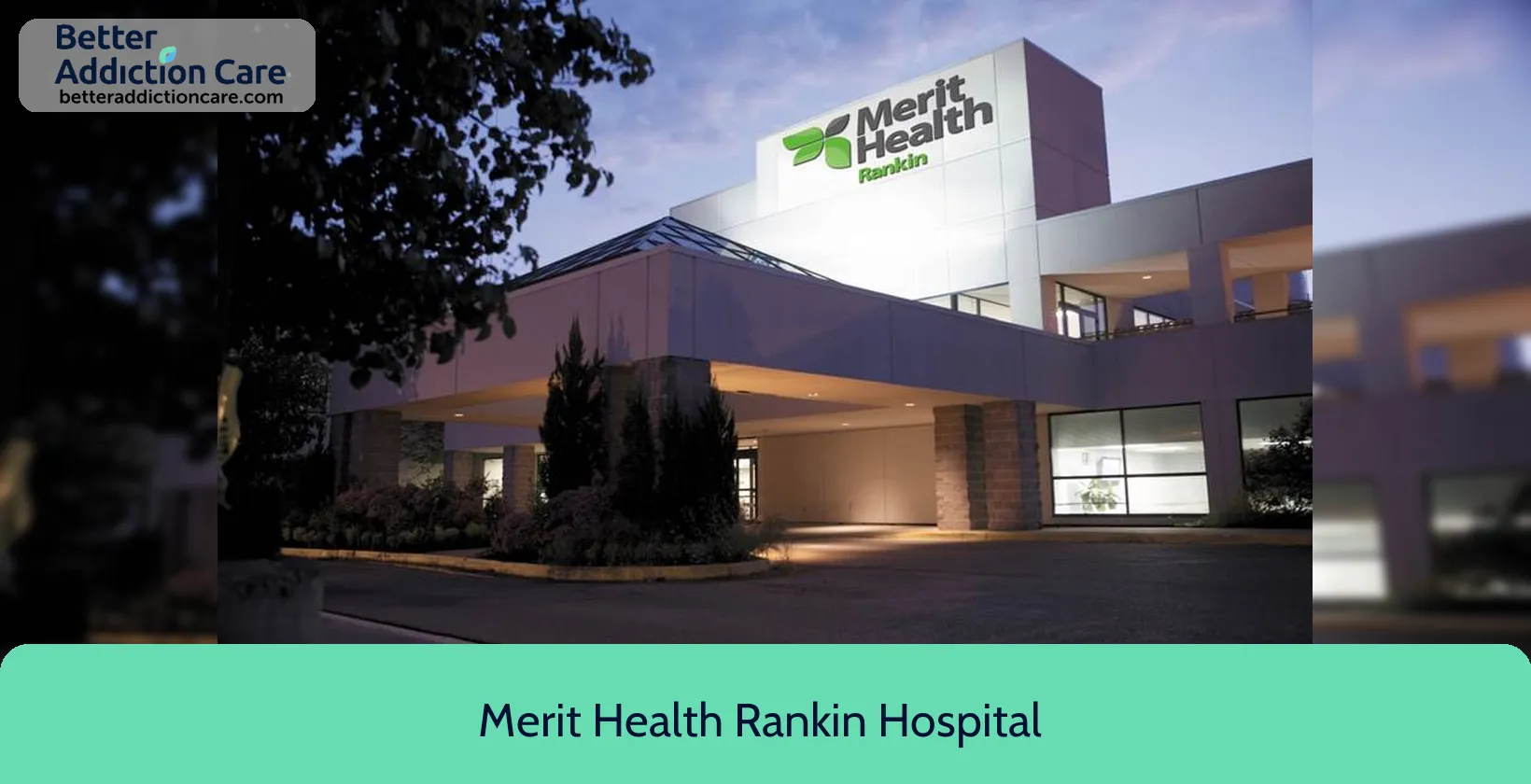Merit Health Rankin Hospital - Behavioral Health Unit
Overview
Merit Health Rankin Hospital - Behavioral Health Unit is a mental health treatment center for people seeking treatment near Rankin County. As part of their treatment modalities for recovery, Merit Health Rankin Hospital - Behavioral Health Unit provides group counseling, cognitive behavioral therapy, and activity therapy during treatment. Merit Health Rankin Hospital - Behavioral Health Unit is located in Brandon, Mississippi, accepting cash or self-payment for treatment.
Merit Health Rankin Hospital - Behavioral Health Unit at a Glance
Payment Options
- Cash or self-payment
- Medicare
- Private health insurance
- Federal military insurance (e.g., TRICARE)
- U.S. Department of VA funds
Assessments
- Screening for tobacco use
- Comprehensive mental health assessment
Age Groups
- Seniors or older adults
- Adults
- Seniors
Ancillary Services
- Case management service
- Diet and exercise counseling
- Family psychoeducation
Highlights About Merit Health Rankin Hospital - Behavioral Health Unit
6.62/10
With an overall rating of 6.62/10, this facility has following balanced range of services. Alcohol Rehabilitation: 8.00/10, Drug Rehab and Detox: 6.00/10, Insurance and Payments: 6.00/10, Treatment Options: 6.49/10.-
Alcohol Rehabilitation 8.00
-
Treatment Options 6.49
-
Drug Rehab and Detox 6.00
-
Insurance and Payments 6.00
Treatment At Merit Health Rankin Hospital - Behavioral Health Unit
Treatment Conditions
- Mental health treatment
Care Levels
- Hospital inpatient/24-hour hospital inpatient
- Outpatient
Treatment Modalities
- Group counseling
- Cognitive behavioral therapy
- Activity therapy
- Smoking/vaping/tobacco cessation counseling
- Abnormal involuntary movement scale
Ancillary Services
Languages
- Sign language services for the deaf and hard of hearing
Additional Services
- Pharmacotherapies administered during treatment
- TB screening
Special Programs
- Veterans
- Persons with Alzheimers or dementia
- Persons with traumatic brain injury (TBI)
- Persons 18 and older with serious mental illness (SMI)
Contact Information
Read our Most Recent Article About Drug Addiction
DISCLAIMER: The facility name, logo and brand are the property and registered trademarks of Merit Health Rankin Hospital - Behavioral Health Unit, and are being used for identification and informational purposes only. Use of these names, logos and brands shall not imply endorsement. BetterAddictionCare.com is not affiliated with or sponsored by Merit Health Rankin Hospital - Behavioral Health Unit.










